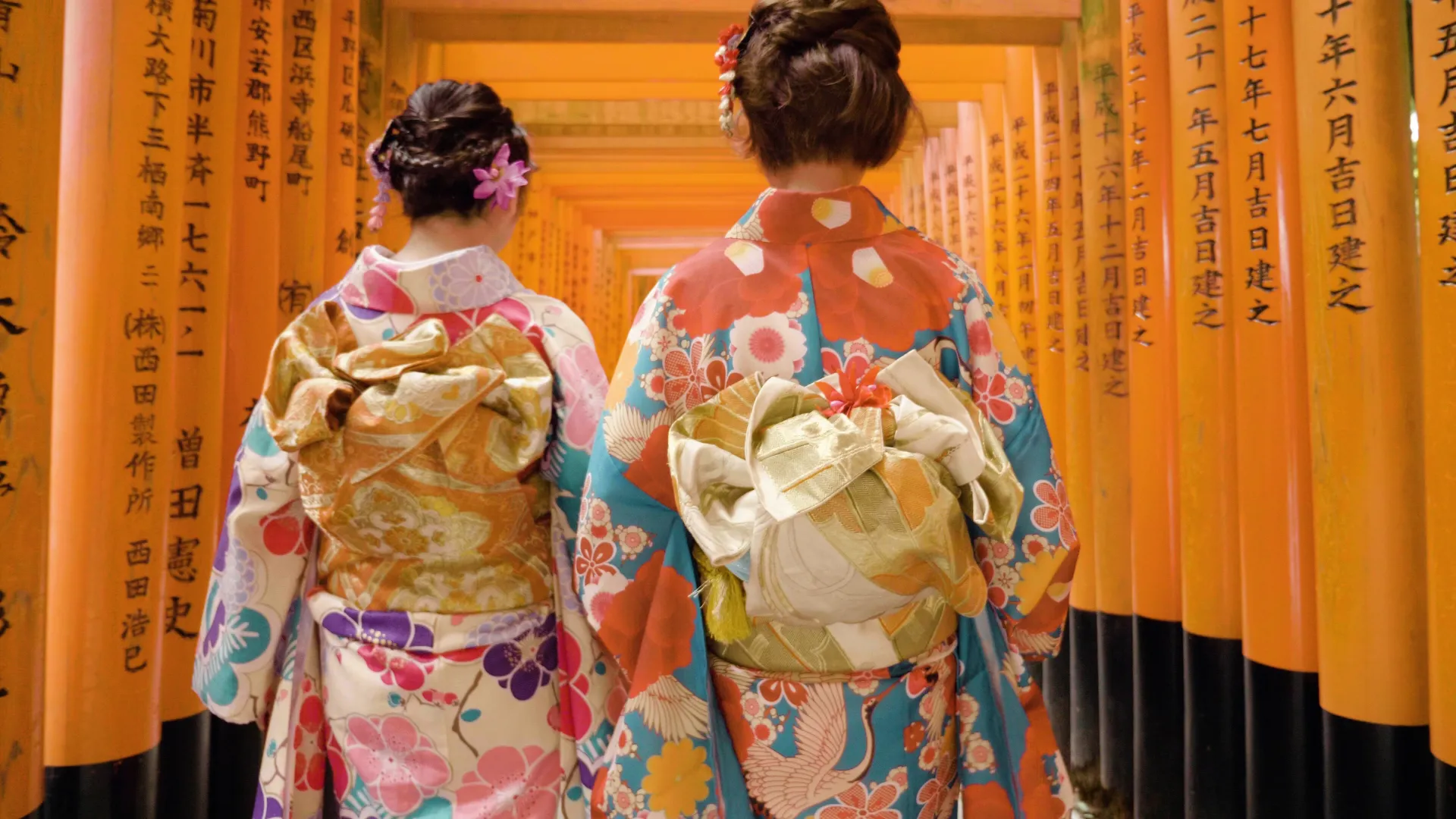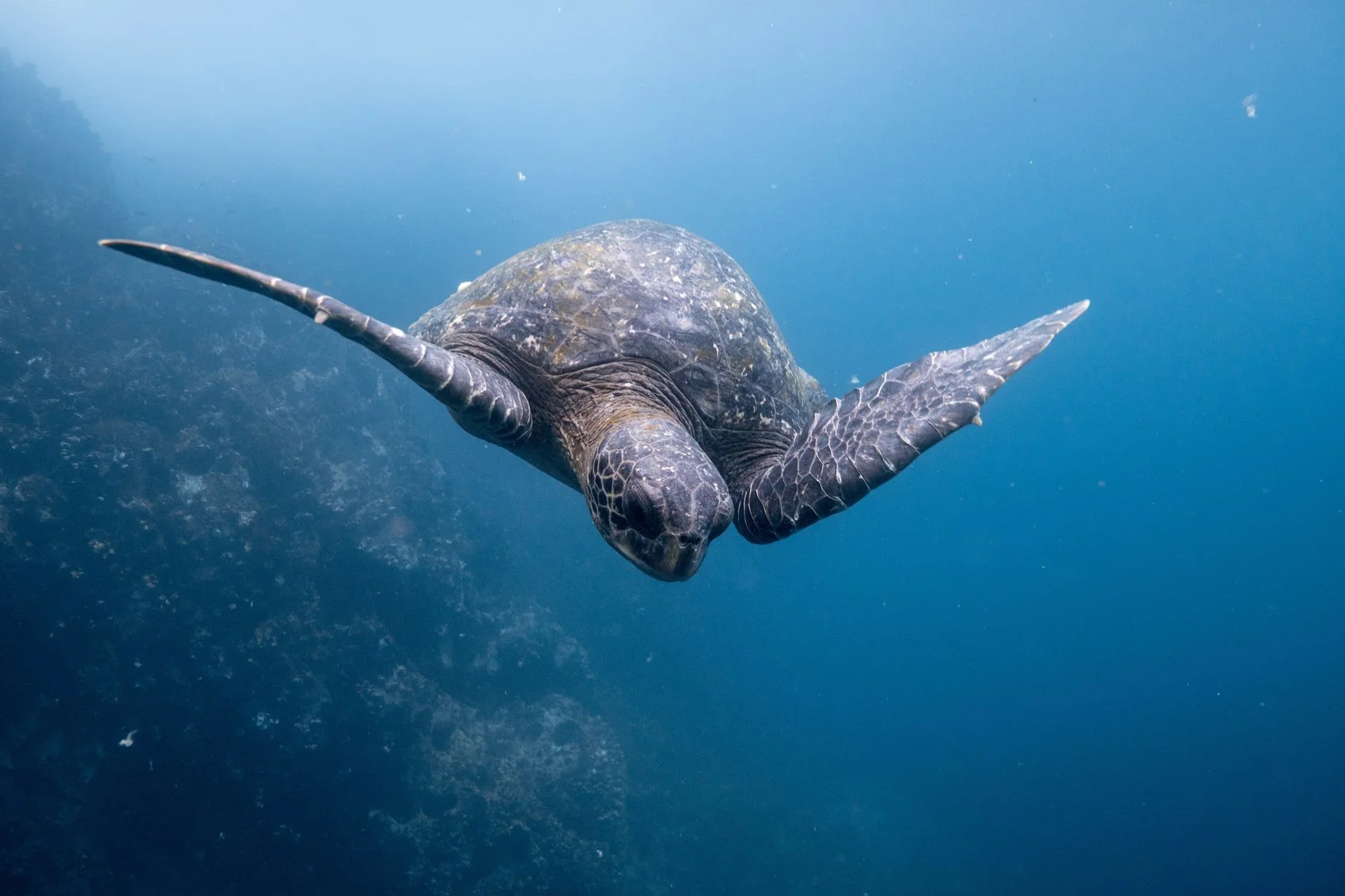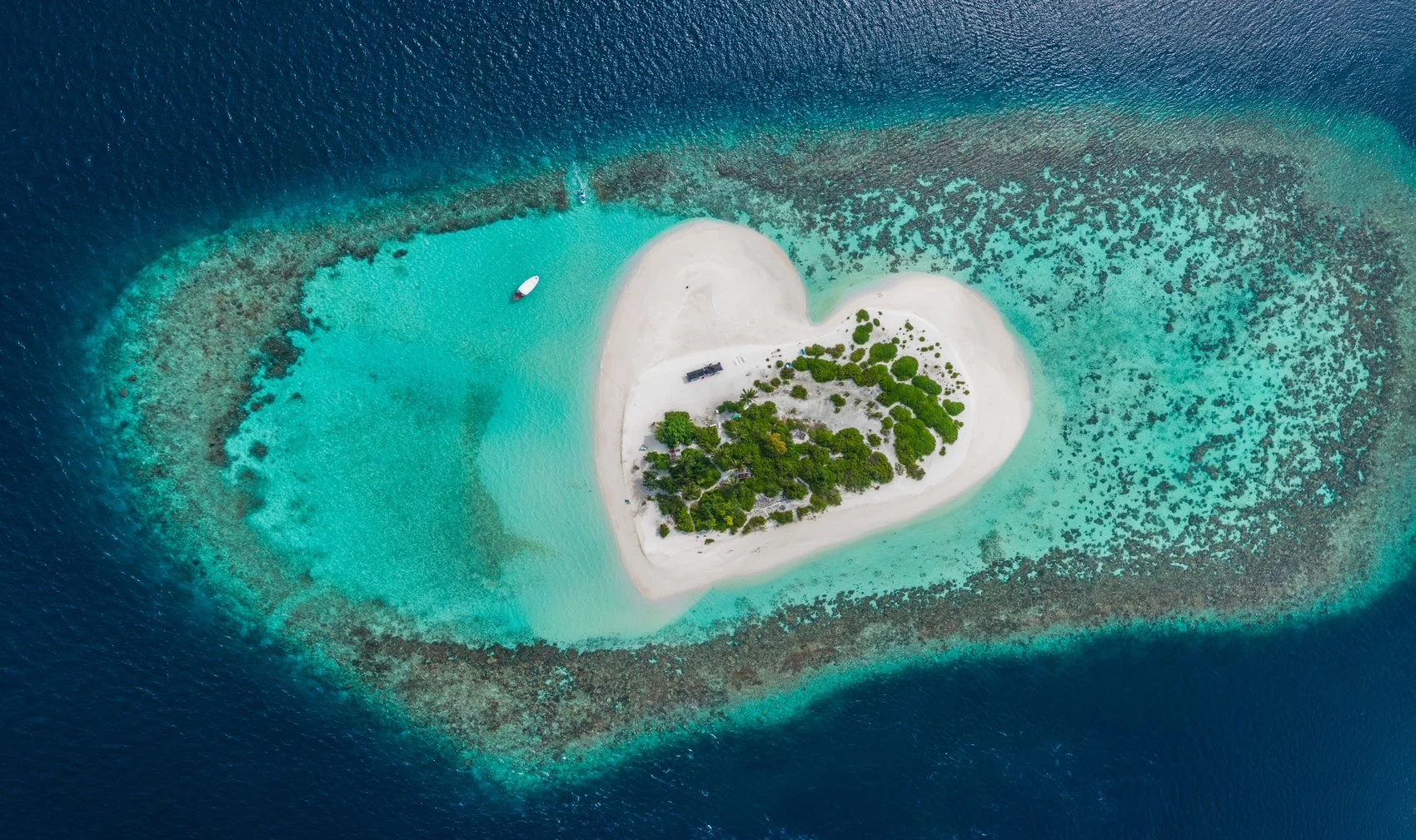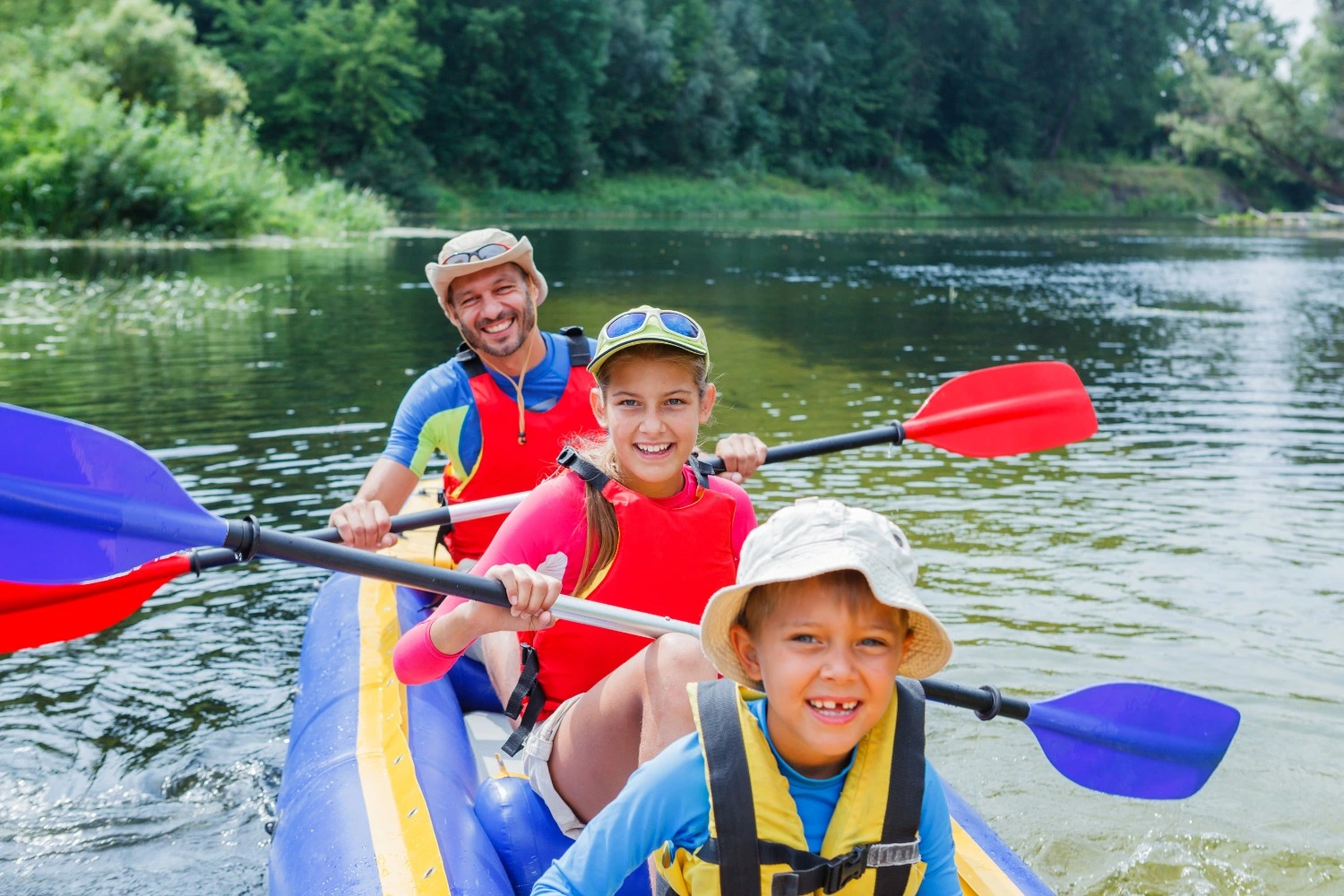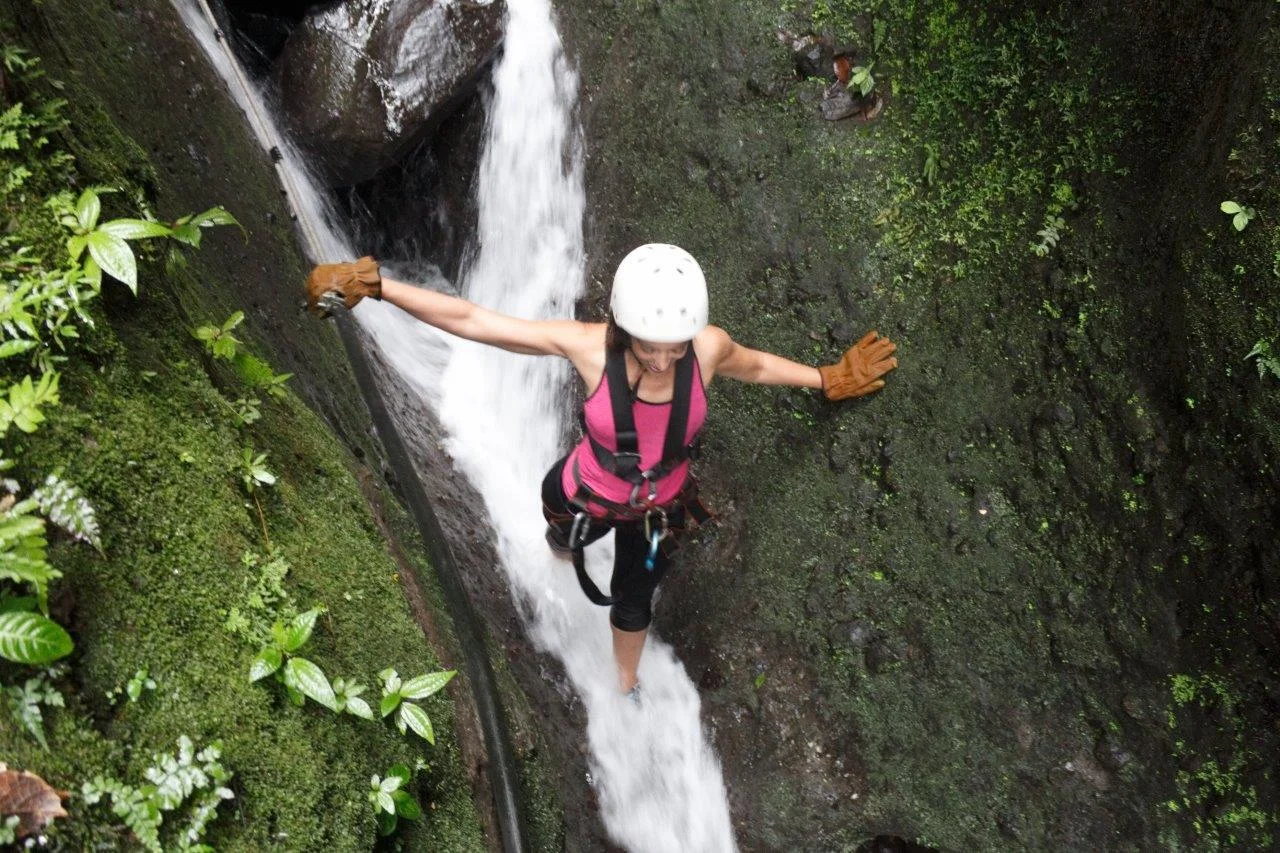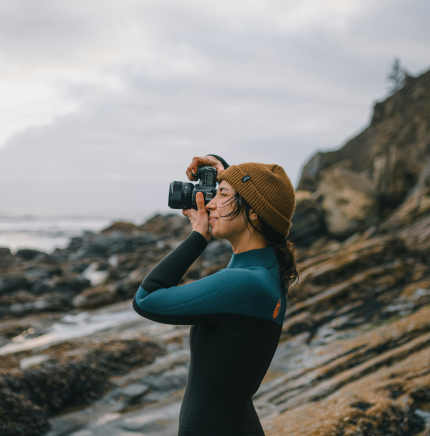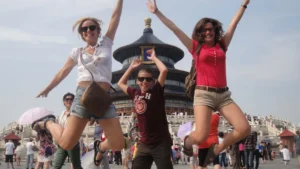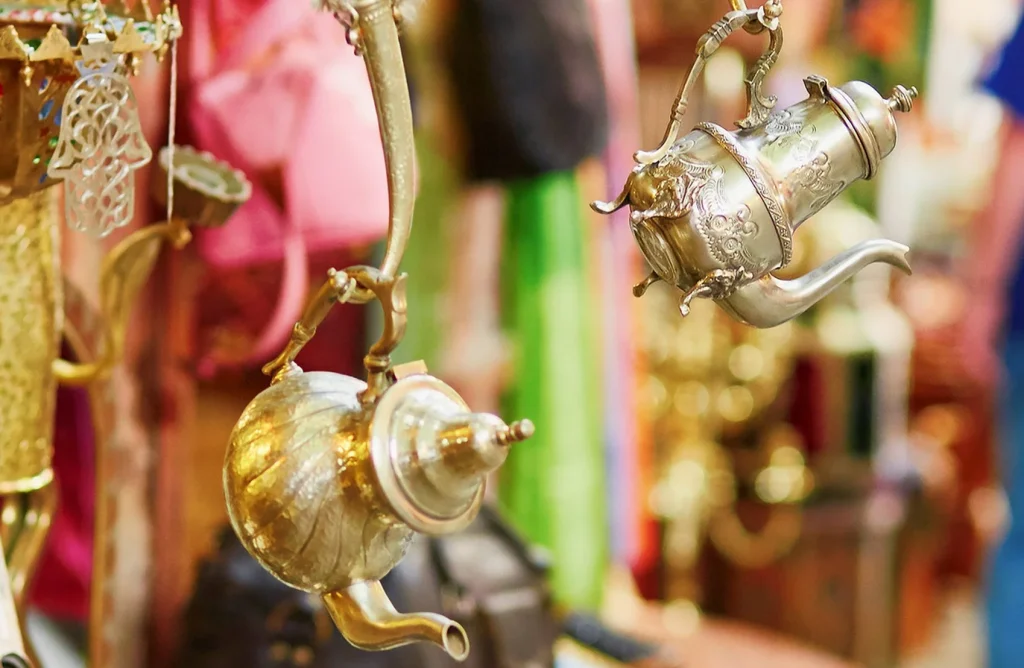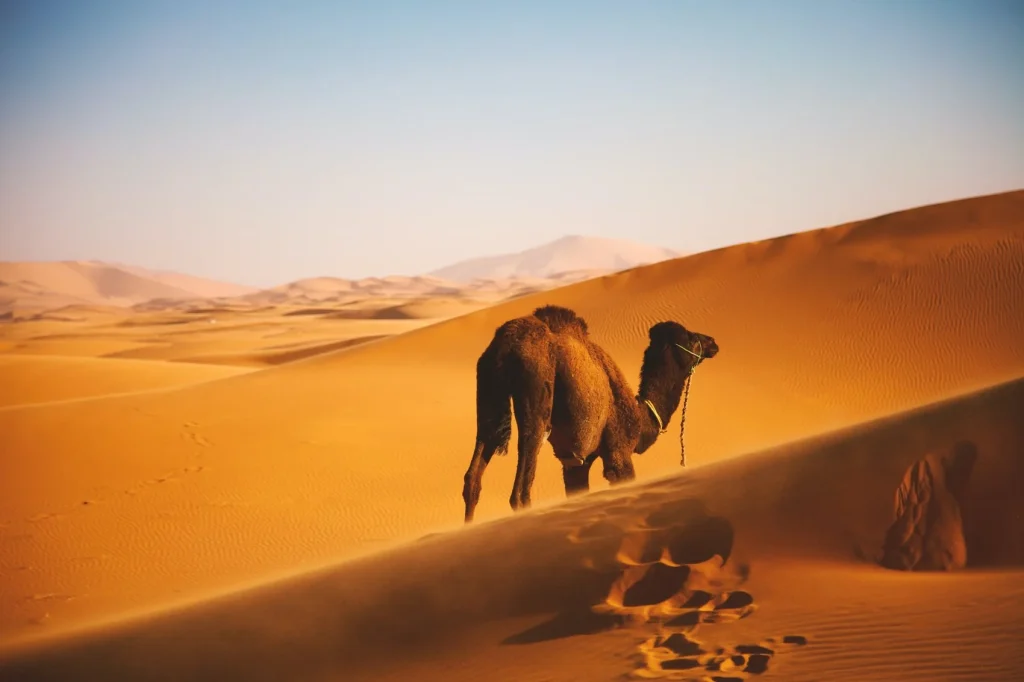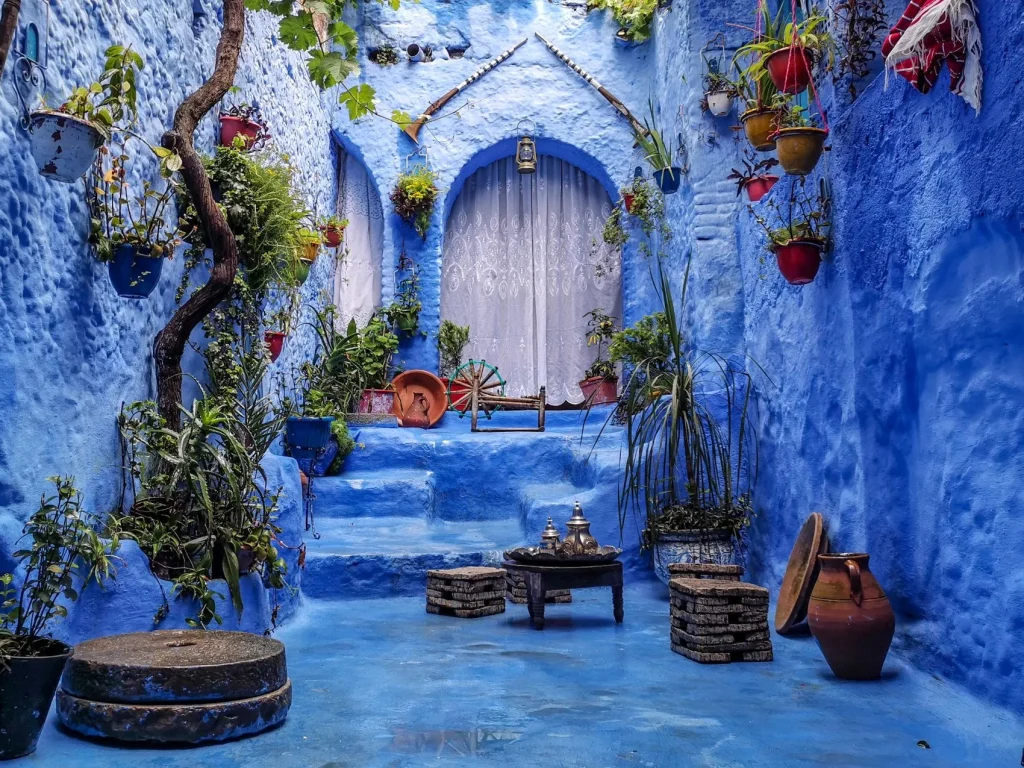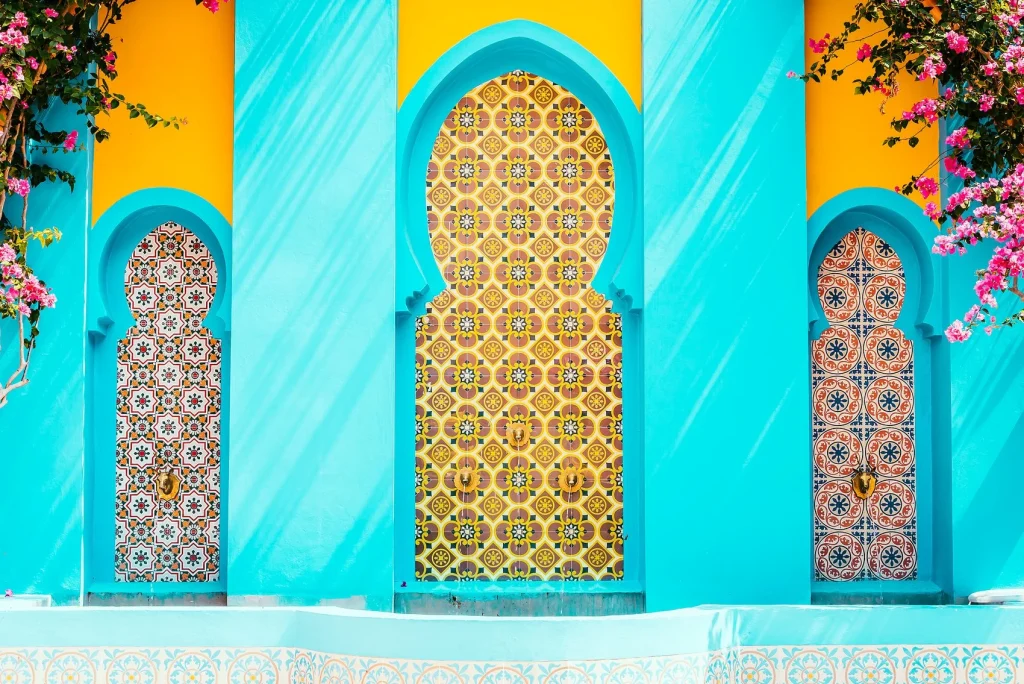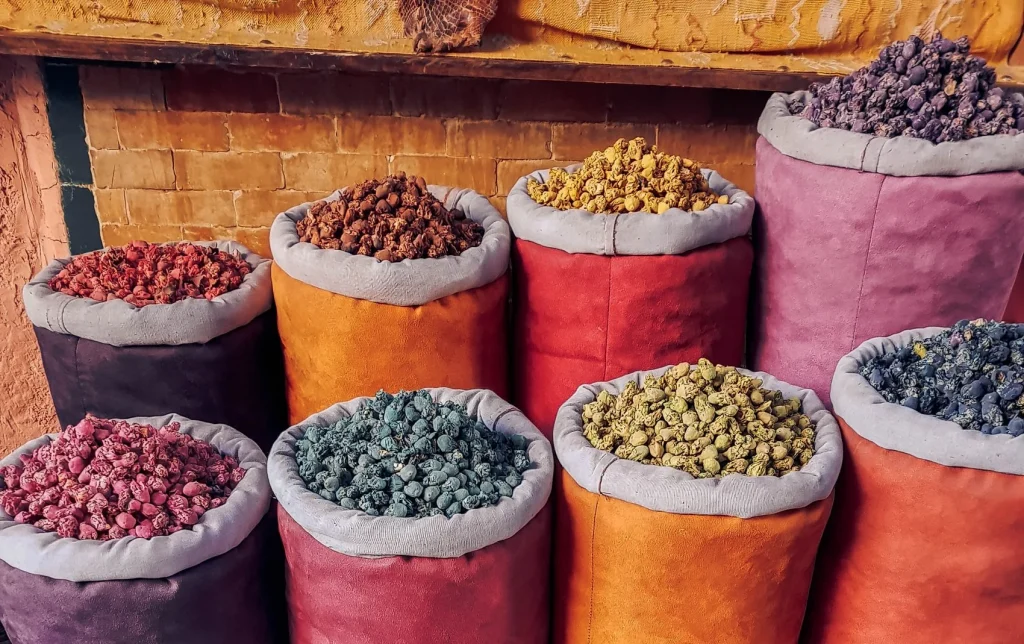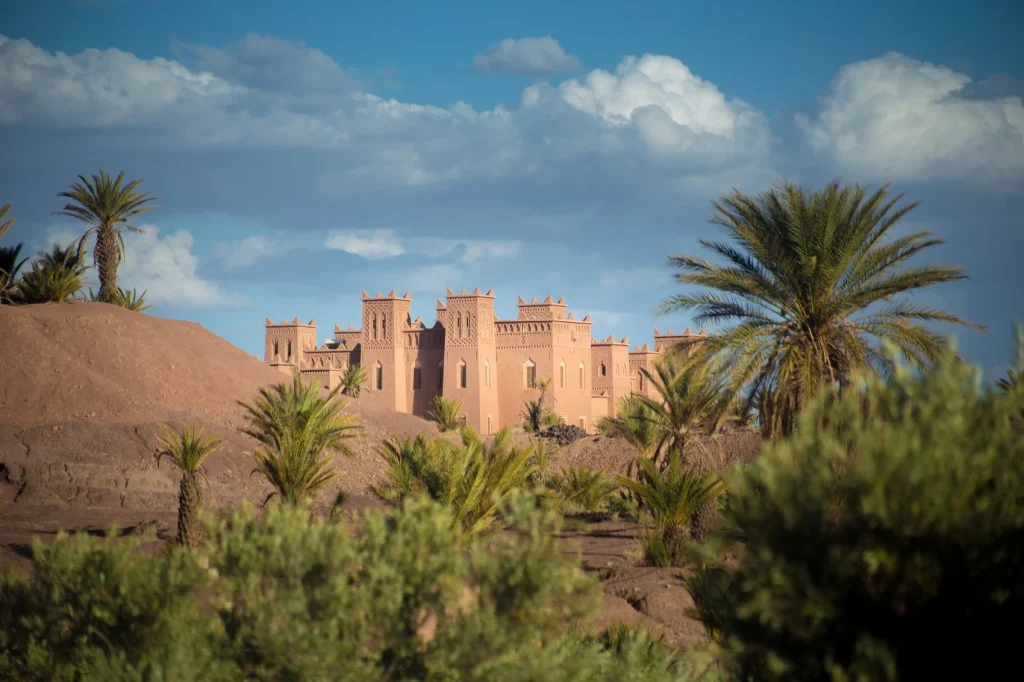Excursions by Exotrav
Morocco Tour
From the Blue Jewel to the Colorful Streets of Marrakech
Trip Duration:
13 days
Recommended season:
March–May
September–November
Morocco - Trip Summary
A customized 13-day Morocco tour begins in Casablanca, Morocco’s largest city. We’ll visit Rabat, the capital, and continue to the beautiful town of Chefchaouen, known as the “Blue City,” with its charming blue-painted houses and alleyways. Next, we head to Volubilis, an ancient Berber-Roman city and UNESCO World Heritage Site, and then to Meknes—one of Morocco’s four imperial cities, known for its historical significance. Our journey continues to Fes, considered one of the oldest preserved imperial cities, and then to Merzouga for a romantic night in a desert camp amid the Sahara dunes.
We’ll explore the stunning Dades Valley and Todra Gorge before reaching Ouarzazate, known as Morocco’s “Hollywood.” In Marrakech, Morocco’s most colorful city, we’ll explore the bustling market and visit the scenic Ourika Valley. We’ll also tour the Berber village of Imlil, and finally, arrive at Essaouira, a charming Atlantic port city.
This tailor-made Morocco journey offers a blend of royal cities, vibrant markets, desert oases, and picturesque mountain villages. With personalized tours, English-speaking local guides, and a dedicated driver, you’re set for an unforgettable experience at your pace and style.
Ancient Cities • Geographic • Culture
Day 1: Arrival - Casablanca - The City by the Atlantic Ocean
Welcome to Casablanca! Upon arrival, you will meet our representative and be transferred to your hotel.
Casablanca is situated along the Atlantic Ocean and is home to approximately 3.3 million people, making it the largest city in Morocco and the country’s economic hub.
After refreshing, we will embark on a half-day guided tour of the city. We will visit the magnificent Hassan II Mosque, built with a substantial budget. Next, we will explore the Museum of Moroccan Jewry. Following that, we will head to Mohammed V Square, the administrative center of the city, and enjoy a drive along the city’s long and impressive promenade.
After the tour, you will be transferred back to your hotel.
Overnight in Casablanca.
Day 2: Casablanca - Rabat - Chefchaouen
After breakfast, we will depart for a drive of approximately 1.5 hours (85 km) to Rabat, the capital of Morocco, which has a population of around 577,000. It is the third-largest city in Morocco, located along the Atlantic Ocean and on the banks of the Bou Regreg River. The city is divided into two main areas: the modern city and the old medina, which features the “Mellah,” the historical Jewish quarter.
Upon arrival, we will embark on a guided tour of the city. We will visit the Royal Palace square, the Mausoleum where Kings Mohammed V and his son Hassan II are buried, and the ruins of the grand Hassan Tower mosque. We will also explore the picturesque Kasbah of the Oudayas, built on a cliff, offering views of the city of Salé and the Bou Regreg River. Additionally, we will tour the modern part of the city, including a glimpse of the Parliament building.
Next, we will continue our journey for approximately 4 hours to Chefchaouen, the blue city located in northwest Morocco, renowned for its blue-painted streets. It is often referred to as “Paradise on the Mountain” due to its beauty and location on the slopes of one of the Rif mountains.
Upon arrival, you will be transferred to your hotel.
Overnight in Chefchaouen.
Day 3: Chefchaouen – The Blue Pearl
Chefchaouen combines North African architecture with Mediterranean elements, but what truly sets it apart are its houses and alleys, all painted in shades of blue. The town is filled with small restaurants and cafes, offering guests stunning views of the houses and the surrounding landscape, as well as numerous markets brimming with local handicrafts. According to locals, the tradition of painting the houses blue is attributed to the Jewish community that inhabited the town as an exiled community during the Middle Ages, when Christians conquered the Iberian Peninsula from the Muslims and expelled the Jews of the region.
After breakfast, we will embark on a guided tour of the old city. As we wander through the cobblestone streets, you will soak in the Moorish-Spanish atmosphere. We will visit an 18th-century kasbah featuring a tower, a garden, and a museum, explore the main square, Utta El Hamam, and stroll through the vibrant markets where you can find textiles, carpets, leather goods, Berber jewelry, and more. In Chefchaouen, like in many Moroccan cities, there is also a public hammam near the main square, with separate bathing times for women and men. If you wish to indulge in a spa experience, visit Art Du Bien-Être, where you can enjoy a hammam and massages with aromatic oils.
Overnight in Chefchaouen.
Additional Activities for Nature Lovers:
• Challenging Day Trip to Jebel Al-Kalaa: Hike to a stunning viewpoint over the region. The trail is not well marked, so hiring a local guide is recommended. This is a strenuous hike of about 7-9 hours (18 km).
• Trip to Akchour Waterfalls: A 45-minute drive to one of the most beautiful waterfalls in Morocco, located in the Rif Mountains. Upon reaching the dam, we will embark on a two-hour hike along a beautiful trail dotted with small waterfalls flowing into the river, leading to breathtaking viewpoints in the heart of magnificent nature. At the end of the trail, you will witness the grandeur of the “Great Waterfall.”
Day 4: Chefchaouen - Volubilis - Meknes - The Royal City of Fez
After breakfast, we will drive for approximately three hours to Volubilis (entrance included, self-guided tour). Volubilis is a Berber-Roman city excavated near Meknes. It is believed that the city served as the capital of the Kingdom of Mauretania during the reign of King Juba II. The city features significant public buildings and homes for the upper class from the 2nd century, including a basilica, a temple, and a triumphal arch. The economy of the city was primarily based on olive cultivation. During the French colonial rule, archaeological excavations uncovered mosaics. The public buildings and the homes of the elite built during that time have been restored, and today it is a UNESCO World Heritage site due to its status as an “exceptionally preserved example of a large Roman colonial town at the edge of the empire.”
Next, we will continue with a short drive to Meknes. This is one of Morocco’s four imperial cities (the others being Fez, Marrakech, and Rabat), which experienced a construction boom during the reign of the great Moroccan ruler – Moulay Ismail – who envied his contemporary Louis XIV and emulated his achievements. Even before Meknes was conquered by the Arabs, there was a Jewish presence in the city. A prominent Jewish community developed here, producing generations of important rabbis. The Jewish residents of the city suffered from decrees during the Almohad period, prompting many Jews to leave the city for Spain. After the decrees subsided, they returned.
The community reached its peak during the reign of Sultan Moulay Ismail, who surrounded himself with Jewish ministers and brought the financier Abraham Amiran and Rabbi Moshe ben Attar, the first Jewish “foreign minister,” closer to him. It was he who signed an agreement with England in 1721. Abraham Amiran was also the architect of the rapprochement between Morocco and Portugal.
After meeting with our local guide, we will start our tour at the impressive “Bab El Mansour” gate, decorated with colorful tiles, built by the same Moulay Ismail who ruled during the time of Louis XIV. We will continue to the market surrounding the royal palace, then proceed to a large square that offers the palace the perspective it deserves. The royal palace, inspired by the Palace of Versailles, is surrounded by magnificent gardens, earning the city the nickname “Versailles of Morocco.” The city once had a distinguished Jewish community, remnants of which can be seen at the Great Synagogue.
After that, we will meet our driver and continue the drive for about an hour (64 km) to Fez, considered the oldest of the preserved imperial cities in the world.
Fez is the second-largest city in Morocco, with a population of about 2 million people. The city’s location in the center of Morocco has made it one of the most powerful cities in the country. Fez has three districts: the old city – Fes El Bali, which will be the focus of our tour the following day, the new city established in the 13th century, which contains the royal palace, and the modern city.
Upon arrival, we will transfer to the hotel.
Overnight in Fez.
Note: It is also possible to skip the stops in Meknes and Volubilis, reducing the drive to 200 km (3.5 hours).
Day 5: פאס- אל ליבה של העתיקה שבין הבירות Fez - The Heart of the Ancient Imperial Cities
After breakfast, we will embark on a guided tour of the city.
We will visit the “Mellah,” the quarter where the Jews of Morocco, descendants of those expelled from Spain, once resided. Next, we will head to the Royal Palace’s courtyard, featuring the entrance facade with seven monumental bronze doors adorned with stunning engravings. We will then continue straight into the medina, the old city of Fez—visiting here is like stepping into a time machine back to the medieval period. This city is over 1,200 years old, surrounded by walls with 14 gates, and at its center lies the Kairouan Mosque. The medina is divided into 187 quarters and contains about 9,400 narrow streets and alleys.
In Fez, you’ll find an endless collection of markets connected to a large, colorful souk, where you can shop for clothes, shoes, bags, mosaics, ceramics, Moroccan carpets, sweets, and much more. The bustling market is composed of numerous smaller souks, such as the wool souk, dye souk, date souks, and, of course, the famous tannery district, recognizable by its distinct and pungent aroma. You will have the opportunity to glimpse artisans preserving traditional crafts, such as blacksmiths, tanners, woodworkers, and more. All of these experiences undoubtedly create a unique sensory adventure.
We will stroll through the winding alleys of the old city, visit the impressive Bou Jeloud gate—one of the main entrances to the medina, the Bou Inania Madrasa, and of course the vibrant souks, giving us a glimpse into a fading world.
After the tour, we will return to the hotel.
Overnight in Fez.
Day 6: From Fez to Merzouga - A Romantic Night in a Luxurious Desert Camp
After breakfast, we will embark on a long journey of approximately 9 hours to Merzouga, the base for exploring the impressive Erg Chebbi dunes, located near this desert town. Gradually, the scenery will transform into arid landscapes until we reach Merzouga.
Along the way, we will pass through Ifrane, a ski resort town situated at an altitude of 1,665 meters above sea level, often referred to as “Little Switzerland.” Next, we will stop in the small town of Azrou. The landscapes will then shift to more desert-like terrains. In the town of Midelt, we can take a short break at one of the local restaurants or cafes. Following this, we will continue our journey through additional desert towns and the impressive Ziz Valley—a lush oasis filled with date palms and fruit trees.
In the afternoon, we will take a short jeep ride towards the enormous sand dunes, the tallest in Morocco, reaching heights of 150 meters and appearing as if they were plucked straight from a painting.
As the sun sets, we will embark on a short camel trek through the stunning dunes.
In the evening, we will enjoy a traditional Berber dinner in the camp.
Overnight in tents amidst the dunes.
Day 7: Sunrise in the Sahara - Merzouga - Todra Gorge - Dades Valley - To the Movie Capital of Ouarzazate
Early in the morning, we will awaken to a breathtaking sunrise as the sand changes colors from gold to red.
Afterward, we will board the jeeps and return to Merzouga. From there, we will embark on a drive of approximately 5.5 hours (368 km) to Ouarzazate, which evolved from a French military outpost to a provincial town known as the “movie capital” of Morocco, where many films have been shot. In the 1970s, the film industry in Morocco gained momentum, and numerous films were produced here, including Gladiator, Water and Love, The King and I, The Ten Commandments, The Prince of Persia, Lawrence of Arabia, Kingdom of Heaven, and The Mummy. The city is primarily inhabited by Berbers and has a population of around 100,000 people. At the center of the city stands the Taourirt Kasbah, a symbol of the city.
On our way to Ouarzazate, we will stop to visit the Todra Gorge, located near the town of Tinghir. You may have heard of Todra from the song “In Our Village of Todra” by the band Natural Selection. The entrance to the gorge, at the last part of the river valley, will leave a lasting impression due to the towering cliffs that rise up to 300 meters, formed during the last ice age with the melting of glaciers.
Upon arrival at the gorge, you will enjoy a leisurely self-guided walk.
We will then continue our journey with a drive of about 2.5 hours (115 km) to Ouarzazate, passing through the most beautiful valley in Morocco—the Dades Valley—where stunning landscapes await. It seems as though nature has sculpted the landscape beautifully, and the erosive forces have created breathtaking scenes in the red rocks of the area. Due to the numerous kasbahs scattered throughout the valley, it has earned the nickname “Valley of a Thousand Kasbahs.”
Upon arrival, we will transfer to the hotel.
Overnight in Ouarzazate.
Day 8: Ouarzazate - City Tour - Aït Benhaddou - Marrakech
After breakfast, we will visit the impressive Atlas Film Studios, the Taourirt Kasbah, and the artisans’ center for traditional crafts (guided tour included).
Next, we will take a short drive of about half an hour (30 km) to one of the best-preserved kasbahs—Aït Benhaddou—for a self-guided tour. Significant funding has flowed into this area thanks to the film industry. The village located at the foot of the kasbah has also been restored to serve as suitable scenery for films shot here, such as The English Patient, The Ten Commandments, and Lawrence of Arabia. The village is situated near the Ouarzazate riverbed, along which trade caravans traveled between the Sahara and Marrakech. Here, you will find closely built earth houses, and the kasbah is surrounded by a high wall with watchtowers at its corners. Aït Benhaddou was declared a UNESCO World Heritage site in 1987 (self-guided).
After our visit, we will continue with a drive of approximately 3.5 hours (185 km) to Marrakech, traveling along a scenic desert road that passes through the winding Tizi n’Tichka pass (2260 m). This road is considered one of the most beautiful in Morocco.
Upon arrival in Marrakech—the most colorful city in Morocco and the historical and cultural heart of the country—we will find a vibrant city with around one million residents, located to the southwest at the foothills of the Atlas Mountains. The city is divided into two areas: the old city (the medina) and the new city, renowned for its colorful alleys and markets, and it has been declared a UNESCO World Heritage site.
Upon arrival, we will transfer to the hotel.
Overnight in Marrakech.
In the evening, it is recommended to visit the main square, Jemaa el-Fnaa, where an experience awaits that feels like it has been taken from the tales of One Thousand and One Nights.
Day 9: Marrakech - Exploring the Cultural Heart of Morocco
After breakfast, we will meet our guide in the hotel lobby and set off for a day of exploration in Marrakech.
We’ll begin our tour at the Koutoubia Mosque, established in the late 12th century and regarded as the largest and most impressive mosque in Marrakech. The mosque’s towering, intricately decorated minaret can be seen from anywhere in the city.
Next, we will visit the Bahia Palace, built in the 19th century by the grand vizier of the sultan. This splendid, ornately decorated palace was constructed in traditional Andalusian style and features pavilions and inner courtyards surrounded by marble fountains, columns, and beautiful gardens.
We’ll continue to the mellah, where the Jewish community resided, and visit the ancient “Al-Azama” synagogue, built in 1492 by Jews fleeing Spain.
Next, we’ll head to the beautifully manicured Majorelle Gardens, created by French artist Jacques Majorelle and later purchased by renowned designer Yves Saint Laurent after his death. The gardens are characterized by vibrant colors and an impressive array of fountains and unique plants, such as cacti and bamboo, which create a serene and unique atmosphere. We will also visit the museum dedicated to Saint Laurent’s work, located near the gardens.
We’ll then explore the medina, home to the endless colorful souk, wandering through the market’s winding alleys where you’ll find just about anything your heart desires: lamps, carpets, fabrics, decorated plates and bowls, tagine pots, leather goods, jewelry, spices, and much more. We will ascend to the second floor of one of the cafes to enjoy a view of the bustling Jemaa el-Fnaa square, one of the central cultural hubs and symbols of the city. You can also include a visit to a traditional apothecary where you’ll learn about the healing herbs used for centuries.
Overnight in Marrakech.
In the evening, if you’re interested, we can arrange seats for you at the “Fantasia Ali” show—a traditional Berber folklore performance that combines dancing, singing, acrobatics on horseback, and gunfire displays.
Day 10: Marrakech- Ourika Valley - A Natural Paradise
After breakfast, we will embark on a day tour to the stunning Ourika Valley, located about 60 km from Marrakech (including a guide). The Ourika Valley is a lush, unspoiled oasis nestled at the foothills of the snow-capped Atlas Mountains. Along the way to the valley, we will pass through orchards, streams, grassy meadows, and traditional Berber villages from the 16th and 17th centuries.
Upon arrival in the valley, we will visit a traditional Berber home and learn about the lifestyle of the indigenous inhabitants of Morocco. This unique cultural experience offers insight into their daily lives and customs.
Next, we will enjoy a circular hiking trail through the valley, where the breathtaking mountainous scenery will captivate us. In spring, we may even catch a glimpse of the snow-capped peaks of the High Atlas. After a day filled with adventure and natural beauty, we will return to Marrakech.
Overnight in Marrakech.
Day 11: Marrakech - Journey to the High Atlas - Berber Village of Imlil
After breakfast, we will embark on a thrilling jeep tour to the Berber village of Imlil, situated in the High Atlas Mountains at an altitude of 1,740 meters above sea level (the temperatures here are cooler accordingly). The village is about an hour and a half drive from Marrakech and serves as a base for excursions in the area, particularly for climbing Mount Toubkal, the highest peak in Morocco.
We will travel along a scenic route, passing through the western bank of the river, where we will see small villages with adobe houses. Due to the lower temperatures in this region, local farmers cultivate apples, quinces, walnuts, and cherries. Upon arriving in the village, we will set off on a leisurely walk, surrounded by lush greenery and breathtaking views of the majestic, snow-capped peak of Mount Toubkal in the distance.
A traditional lunch will be served at a local family’s home, providing a genuine taste of Berber hospitality.
Afterward, we will make our way back to Marrakech, concluding our day of exploration.
Overnight in Marrakech.
Day 12: Marrakech to Essaouira - City Tour
After breakfast, we will embark on a approximately 3-hour drive to the western coast, heading to Essaouira, a charming port city located on a bay by the Atlantic Ocean. During the journey, we will be treated to a fascinating sight of goats climbing the branches of argan trees to eat their fruit.
Upon arrival, we will enjoy a half-day guided tour of Essaouira. We will visit the mellah (Jewish quarter) and the house of the famous Pinto synagogue, located on the second floor of a three-story building. Recently, the synagogue has been renovated and is maintained by two local women. We will continue our exploration of the old town of Essaouira, wandering through its narrow alleys and heading to the city’s fishing port. From there, we will proceed to the remains of the Portuguese fortress, established in 1506, where we will find a ramp adorned with cannons mounted on wooden bases.
After the tour, we will transfer to the hotel.
Overnight in Essaouira.
Day 13: Essaouira - Marrakech - Airport
After breakfast, depending on your flight schedule, we will have a transfer of approximately 3 hours to the airport in Marrakech.
Upon arrival, you will board your flight back home.
Unforgettable Journey, Designed for You.
Unforgettable Morocco Your Way
More Popular Tours in Morocco
Why Discover
Morocco
with
Us?
We take care of everything for you—crafting a personalized itinerary, booking all services, and handling every detail, big and small. All you need to do is pack and get ready to enjoy a seamless, unforgettable travel experience tailored just for you and your loved ones.
Travelers Testimonials
“The experience was so powerful”
The trip was amazing and well-planned! Meticulous planning, friendly guides, unforgettable experiences, and the desert stay recommendation – powerful!Riva and Jack
“An Unforgettable Morocco Journey”
Our Morocco roots journey was beyond extraordinary! Every detail was flawlessly planned, with heartfelt care and professionalism. The guides, itinerary, and support in every city made this an emotional and deeply enriching experience. Muscat truly delivers tailor-made travel with warmth and dedication!The Cohen Family
“A journey through heritage”
This meaningful trip through Morocco exceeded expectations. From exceptional service and guides to a powerful personal connection with Jewish history – everything was seamless. The hotels were excellent, the itinerary well-paced, and the experience unforgettable.Recommended by Ethan Shay
“Amazing Trip and Excellent Service “
The Morocco trip was amazing! The courteous and professional service from the Musketeers team was outstanding, and their availability was exceptional.The Gore Family
An exceptional experience
הטיול במרוקו היה יוצא דופן! ארגון מקצועי, מדריכים מצוינים, והמלונות ברמה גבוהה. בהחלט מעל הציפיות שלנו!yonatan
“Perfect Morocco Trip with Muscat”
Our two-week trip to Morocco was amazing! The driver, Abdul, was knowledgeable, patient, and accommodating. The local guides were friendly and professional, and the hotels were perfect. Throughout the trip, Muskate checked in to ensure everything went smoothly, making us feel well taken care of and in skilledAfra Weiss
Perfectly Organized Morocco Trip
Our trip to Morocco was unforgettable—beautiful and fascinating. The entire trip was flawlessly organized, with everything on time. Our driver was excellent, and the guides were professional. In one word, it was a perfect vacation. Thank you for everything!Dana and Gil
